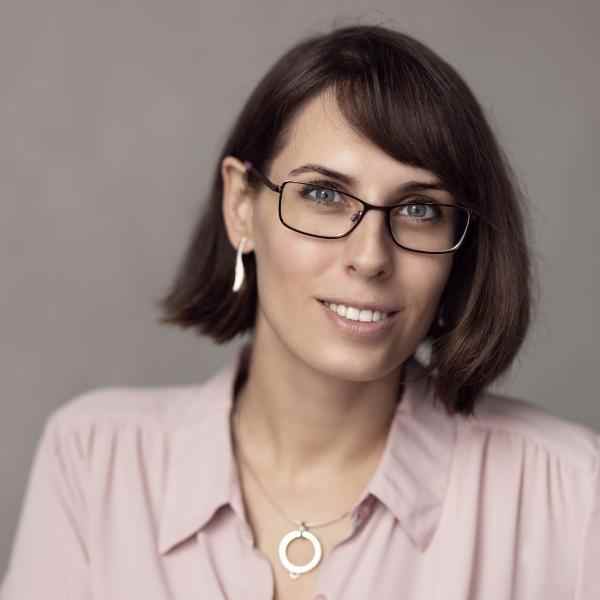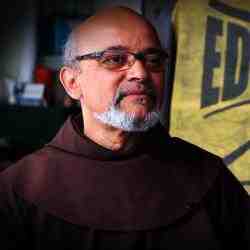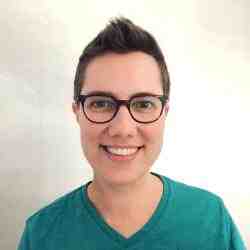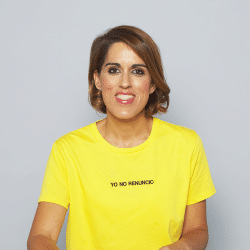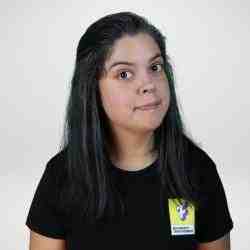Introduction
After the end of communism, the images of Romanian children found in orphanages shocked the world. Romania is still far from bending the curve for the support offered to disadvantaged children by its institutional care system. Iarina sees the deep systemic vulnerabilities and changes the mentality of how society should care for its less fortunate children. She builds autonomous teams of life mentors who offer the framework of emotional connection that children need, building on the strengths of these children, eliminating stigma, and fostering their growth and wellbeing.
The New Idea
Romania has one of the largest institutional care systems in the Central and Eastern Europe region and still has outdated orphanages in operation. In this context, Iarina realized that the most essential factor for children in state care to get out of the poverty and trauma cycles is to build trust and form healthy bonds with significant adults as they come to age. Knowing that this doesn’t happen everywhere with employees of state care institutions, Iarina, who experienced herself the power of long-term volunteering, built a national citizens’ team of teams who get involved for at least 8-12 months of their life to effectively create the missing human bonds with these children. Iarina has struck on a systems-changing solution that not only addresses the crisis of care that children in these institutions face but embraces and shifts the culture of these institutions to ensure this new approach flourishes.
When it comes to the children, Iarina saw that those in state care are not being set up to live a peaceful and decent life but rather experience more trauma inside the institutions, low rates of educational attainment, and a lack of integration in social contexts outside the institutions. The general public and the employees of the state care centres see their responsibility in physical care and education of children but no responsibility for their emotional wellbeing or happiness. Iarina is trying to change the system by changing the minds and hearts of the people who work in the system while engaging citizens as engines of this process.
Romanians have a long history of not volunteering and seeing it at most as a very short-term engagement, especially for public or community matters. Iarina managed to harness the growing interest of citizens to support institutionalized children and got them to volunteer, some for their very first time. In doing so, Iarina forges the critical long-lasting bonds between volunteers, the adult figures, and children. To the landscape of care, she’s added a much-needed new role in the life of children: a life mentor. Together with psychologists and other professionals, life mentors are supported and trained in how to build trust and create long-term bonds that last even when children get out of state care. Life mentors become the changemakers that shift the focus of institutions from the immediate needs of children (e.g.: food, shelter) to the deeper underlying needs for their development (e.g.: mentors, emotional bonds, personalised learning). To permeate the system and guarantee that creating bonds becomes important for the state care workers who are fearful to try something new, Iarina is making sure they can be equally supported in their work, be motivated, and spark their desire to open wholeheartedly and see their job as caretakers and emotional support people, not as “prison guards” or trainers of income-generating activities.
The Problem
During communism, poor families were encouraged to leave their children (especially those with disabilities) in the care of the state. By 1989, more than 100,000 children were in precarious institutions and more than 16,000 children died every year from treatable diseases or other causes. Even when conditions were reasonably improved, institutionalization had a strong impact on children's health, developmental results, and psychological state. While significant progress has been made in the past 30 years in reducing the number of children in state care, Romania has one of the largest alternative care systems in the region. Because they only cater for their basic needs, children and youngsters in the protection system lack the human bond and individual care that would support their development as functional and independent citizens. In 2018 there were 58,529 children in the protection system, of these, 18,000 were in foster care, 13,900 with relatives, 4,800 with other families, and 18,500 in state-run institutions. Only around 3,000 of these children were adoptable. 32% of the children end up there due to poverty and 25% due to abuse and neglect.
Children in state care suffer from abandonment trauma and try to replicate behaviours that prove they are not wanted and not worthy of love. Especially in orphanages where the personnel are stretched due to the number of children (usually 30-40 per institution), each child builds on their trauma throughout their teenage life when they become abusers on their own and develop dangerous romantic and non-romantic relationships with those around them. At this point, they don’t have the basic life skills needed to transition to life as a full citizen and are not supported to find a job or to continue their education. 65.9% of children get out of the system without having an occupation. Only 15% of the children that leave the system continue any form of education, and only if they have the support of adults present in their lives. The poverty and trauma cycles continue outside the system as they are easy targets for human trafficking, homelessness, and most of the time when they have children of their own, they abandon them.
The communist society was a collectivist one and individualism was considered a deviation that had to be repelled. Under the hostile totalitarian conditions, characterized by a scarcity of resources, a form of individualism, similar to social egoism grew. This allowed the survival of citizens but intensified the mistrust in their peers (colleagues, neighbours and family members). This type of individualism did not disappear, and even though a form of democracy rose in Romania, citizens have a heightened desire to do things on their own, not collaborating and taking care mostly of things that they possess. Being engaged in social actions was mandatory during communism (e.g.: volunteers in national celebrations). This led to Romanians not having an inner desire to contribute, and volunteering is seen as a waste of time, with those that are engaged being considered “the fools of the village”. Especially in smaller cities, where the mentality change happens during a longer period.
Although the level of corruption is decreasing, state institutions are still very political, inefficient and instil a culture of fear, where everything needs to look good on paper, otherwise, your job is at risk. At care centre levels, the culture of fear and distrust shows up mostly among the employees, who are closed inside their own tight and hard-to-reach boxes. They must write perfect reports that show perfect conditions as a way for care centres’ directors to siphon money. At the same time, educators see their job only as a stable income activity. Many of them have no training on how to work with children with trauma and no supervision or support. As a result, they develop their own trauma that adds to the fear of speaking up when things go wrong inside the institution and trying new processes or activities. Moreover, there is a mismatch between the job description an educator has and the more diverse and profound needs that children develop. Children express their need for affection, understanding, and communication from the main carers, while the employees don’t spend enough time with children and don’t involve them in preparing their daily activities and development plans.
The Strategy
With 5.000 children entering the childcare system every year, Romania faces the critical task of supporting the development process of every individual. The change that is required so that children in the care system could grow up as independent and self-aware humans needs to be around the behaviors, attitudes, and relationships that people from the system and society have regarding the children. Iarina targets system change but is realistic about the speed of that change and the current resistance to change within the care system. She has systematically built one on one relationships with the leaders in the various orphanages. She has trained staff in the orphanages and is trying to change the system from within while keeping an apolitical approach.
In state care centres children have their basic needs (food, clothing, and basic education) catered for, but in many cases, their more comprehensive development plans are just on paper. Iarina is aware that the care process for disadvantaged children with trauma should be humanized and customized, something that the current system struggles to provide. Beyond skills or knowledge, children need a person who will listen to them, offer support for their specific needs, and makes them feel important, cared about. For her intervention to succeed, Iarina builds a simple yet practical way for children to get the attention they need.
Thus, the Growing Great program took off. A process through which dyads of people give 2 hours a week for at least 8 months as life mentors. Although 8 months seems like a very short time for a change to happen, considering the low level of volunteering, this became a strategy to attract people and over 50% of them continue to be life mentors well beyond that period, around 3-5 years. The continuation comes from an inner place and desire to contribute to a more holistic change in the system.
Even though being civically engaged is not a widely spread behaviour in Romania, Iarina builds on the growing momentum for Romanians’ desire to contribute to a better society, by offering a life mentoring experience that deeply matches the needs of children in the orphanages. Yearly, between 2.000 and 3.000 citizens (aged 16 to 65) sign up for the programme, but they are required to go through a strict learning phase, including phycological clearance, an 8-hour session that trains them on how to properly interact and communicate with children, how to develop educational activities for them and how to manage tense situations (e.g.: fights between children) and final flash tests to assess if their behaviours would be one of encouraging children or judging them. After this process ends, they sign volunteer contracts and are emerged in county-level communities of life mentors. Life mentors are given space to innovate and bring their creativity in their work, whilst making sure they do respect the norm that governs a state care institution, the protocols they have in place and financial principles (e.g.: each activity and the volunteers' program needs to be signed off by county Child Care Services or Centre Care Director). County-level life mentors’ communities have a high degree of ownership, and they self-organise depending on their needs: some have coordinators both at county and at care centre levels, others only at the county level. They have private groups where they post information after each interaction with children, as peer to peer learning is the most important key at the local level. Together, they form a family that gathers all their resources to cater for the needs of children. Some life mentors adopt children, some change their careers to become teachers, psychologists, therapists for disadvantaged children and many are key people in youngsters’ lives when they leave state care. Even more, they are placed in so that if one of them must stop their activity, the bond with children continues and when such a moment comes, there is a closure process that allows a healthy separation. Life mentors let children know what they love and appreciate about them and explain that they have no fault, thus avoiding additional separation trauma.
Starting with support for school homework, children build trust and share more about their needs and desires. As each child faces their traumas and development needs, Iarina built a network of professionals (e.g.: psychologists, speech therapists, vocational trainers) around the organisation, whose skills can be tapped whenever a life mentor sees that a need arises. For more specific passions, life mentors together with the Growing Great team explore local opportunities for children to experience (e.g.: theatre course, circus school, canto and dance lessons, sports, robotics) and when possible, children are taken outside the care centres for summer camps, trips, and other social activities (in 7 years, 3.028 social activities and 24 summer camps took place). During the pandemic, children were offered online courses for their development, including dance, theatre, canto, and robotics, among others. With many children leaving the care system unable to make decisions about their life, Iarina increased her efforts in this direction, offering youngsters the opportunity for vocational counselling, site visits to explore different jobs, professional training courses, helping them get driver’s licenses. On top of that, Iarina worked with other civil society and public organisations to launch an independent living guide that will be used by life mentors and educators and directly by children. The guide includes important legal aspects that could help children have an easier way out of the system and is not currently given to them (e.g.: youngsters can stay in the care centres if they study or have a job up until they are 26 years of age).
Overall, 2.500 children’s needs are catered to each year, with 682 children going through vocational courses, 136 children in psychotherapy, 42 children in speech therapy. Iarina has engaged 8.500 volunteers to date, with 490.400 hours given to support children. Those that experience being life mentors become the civically engaged community nuclei that can have ripple effects as more people around them want to have the same experience. The movement is growing as Iarina mobilized 10.900 donors, with 775 people donating their birthdays to or taking part in events to raise funds for the Growing Great programme. The intervention reaches over 220 state care structures (daycares, orphanages, family-type homes) and children start discovering their strengths, improving their communication skills and expressing their feeling more empathically, they start making friends at school and have a desire to achieve more in life. Two children who went through the Growing Great programme as young people have now become life mentors themselves.
To permeate the system and work on the long-term shifts needs, Iarina helps the system but also transforms the cultures of care in orphanages. Apart from the minimum 2h/week allocated to working with children, each life mentor gives one extra hour for paperwork, which includes, besides preparing materials and activities for children, filling in a short report which helps track down what happens with each child, everything being centralized by Iarina’s team. This reporting language helped Iarina build a strong relationship with 23 county-level childcare services, which allows her team to be present in orphanages, and helps fearful state employees feel more secure in their jobs.
Iarina’s empathy doesn’t extend to just the children, but to the traumatized staff of these struggling institutions. To the latter point above and in order to systemize the practice of building bonds with children, she had to permeate deeper and offer almost pastoral care for all state care personnel, especially of educators, who experience solitude and lack of institutional support. It is pivotal for her work to address the fear that educators feel and support them to address their own trauma. Becoming less inhibited, they give themselves the freedom of becoming true carers, changemakers within the system. The pandemic made educators attend training sessions held by Iarina’s team on the same topics that life mentors are prepared for (between 500 and 900 people attend their online courses). Moreover, educators are invited to online support groups, like the one’s life mentors have, where, besides sharing experiences, they have access to psychologists. Even though, some participants join the courses to get a certificate of completion, there are others who even spare time from their vacations to learn what nobody teaches them about. Iarina sees the online learning process as an opportunity to bring more state care employees closer to her work, build a better relationship between them and life mentors and create a more humanizing environment for children. Change cannot come only from the outside; it needs to also come - or at a minimum be embraced by – people on the inside. This last step is critical in ensuring the progress she’s made over the years can be built on, and that the transformation of care centres is permanent.
What started as Bucharest based project, grew each year and is now covering all big regions in Romania, even organisations from the Republic of Moldova have queued up to spread this novel approach. Now that networks of life mentors exist around the country, Iarina has focused on her role as a field builder, and on systematically addressing the numerous challenges faced by those in the new role of a life mentor. Iarina and her national coordinators build support structures with tools needed to attend to children’s needs to the fullest. From niche training sessions about online safety, civic education, financial education, sexual education, to a space on the website with resources, to a network of psychologists that offer them tips and tricks, ideas of activities for children and advice for more difficult situations.
The Person
As the only daughter of a well-educated family, Iarina was always steered towards having good education as well. In high school, she used to write short stories and was awarded the National Writers’ Union’s prize for debut for prose. While she wanted to study literature, her parents swayed her into choosing something that could earn money, marketing. She started her volunteer work by organizing events in high school and later, became a volunteer coordinator during the first university year. In a country where volunteering was not seen as a respected activity, this is when she realised that there is a shift in society and growing momentum for volunteering; this is when she first latched onto the idea that this critical mass of people could channel their energy into something more meaningful.
In 2013, when she was working in PR at an educational centre, her employer had an idea to access European funds to organize a project for disadvantaged children. Iarina participated in an Erasmus+ training about project writing that used non-formal educational methods, which opened her eyes regarding how education can look like. The company also owned a civil society organisation and Iarina oversaw a pilot project, for which she recruited, trained and coordinated 27 volunteers to teach English using non-formal methods in daycare social centres for disadvantaged children in Bucharest. The volunteers, high school students, worked 2 hours per week with the same group of children and only taught them English, but they saw the impact of their work: improved self-esteem, improved English knowledge, motivation to learn, improved social skills. More volunteers were joining (27 in summer, 60 in autumn, 120 in spring) and the project was expanding in 3 more counties. While Iarina realized the great potential of the project, her employer was more interested in the company, leaving the CSO’s activity in the background. Thus, Iarina decided to quit and try to collaborate with a different CSO which would support her ideas and projects. The collaboration was short-lived as Iarina didn’t find there the support she was searching for and decided to start on her own, with only 150 euro in her bank account, but with no restrictions for her creative ideas and a close group of friends who offered to help her out. Iarina had her first experience in a state care institution at the age of 25. She was shocked by the continuous screaming of a 3-year boy who was abandoned at birth and recently abandoned by a foster care person. She was stunned by the sufferance and loneliness of the children, most of them not being able to express it. This experience contributed to her decision to create a programme that would humanize the care process for disadvantaged and traumatized children.
